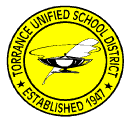Torrance Schools Win Big in Law Suit Defense
The Torrance Unified School District announced today that in a

decision which may significantly affect school districts throughout California, the California Court of Appeal has affirmed the dismissal of six out of seven causes of action in a lawsuit concerning the modernization of Riviera and Towers Elementary Schools through the lease-leaseback project delivery method.
The suit was brought by James McGee, a local resident, and the California Taxpayers Action Network (“CTAN”), which appears to be an alter ego for Rick Marshall. Marshall has brought four different lawsuits against the District, losing all of them. In one of the instances, the judge sanctioned Marshall’s attorney for filing frivolous lawsuits. McGee and CTAN alleged that the District violated California Education Code section 17406 by awarding lease-leaseback agreements without seeking competitive bids. In lease-leaseback agreements, school districts lease property they own to a contractor; then the contractor constructs buildings and leases the site and buildings back to the school district. At the end of the leaseback term, title to the site and buildings vests in the school district.
Crucially, the Court of Appeal ruled that section 17406 does not require competitive bidding. This is an important ruling not only for the Torrance Unified School District, but for many other school districts, contractors, and taxpayers across the State. In its decision, the Court of Appeal for the Second Appellate District expressly rejected a recent ruling against the Fresno Unified School District by the Court of Appeal for the Fifth Appellate District, which found that lease-leaseback agreements required a genuine lease and contractor financing in order to be exempt from the bidding requirements. According to a column published in September 1, 2015 in the Los Angeles Daily News, the Fresno ruling left “a big mess,” considering over 100 school districts used lease-leaseback agreements in building their schools, with the Los Angeles Unified School District constructing over 70 schools in this manner.
The only claim against Torrance Unified School District to survive the Court of Appeal’s recent ruling is one for conflict of interest. The Court of Appeals did not find that a conflict of interest existed. Rather, it merely held that the plaintiffs could return to Superior Court to try to show that a conflict existed.
Torrance Unified School District’s attorney, Martin Hom of Atkinson, Andelson, Loya, Ruud & Romo, is very pleased with the ruling. “We were able to dismiss six of the seven causes of action in the lawsuit, and we hope to defeat the remaining claim swiftly,” he said. “School districts shouldn’t have to spend their limited resources defending against these baseless lawsuits. The plaintiffs have now lost their specious arguments that the District violated the Education Code on two separate occasions, and now cling to their unsubstantiated claim that a contractor who offers program management services can be sued for conflicts of interest. In any event, we’ve won a significant victory for our client and for many other California school districts that utilize the lease-leaseback delivery method.”
